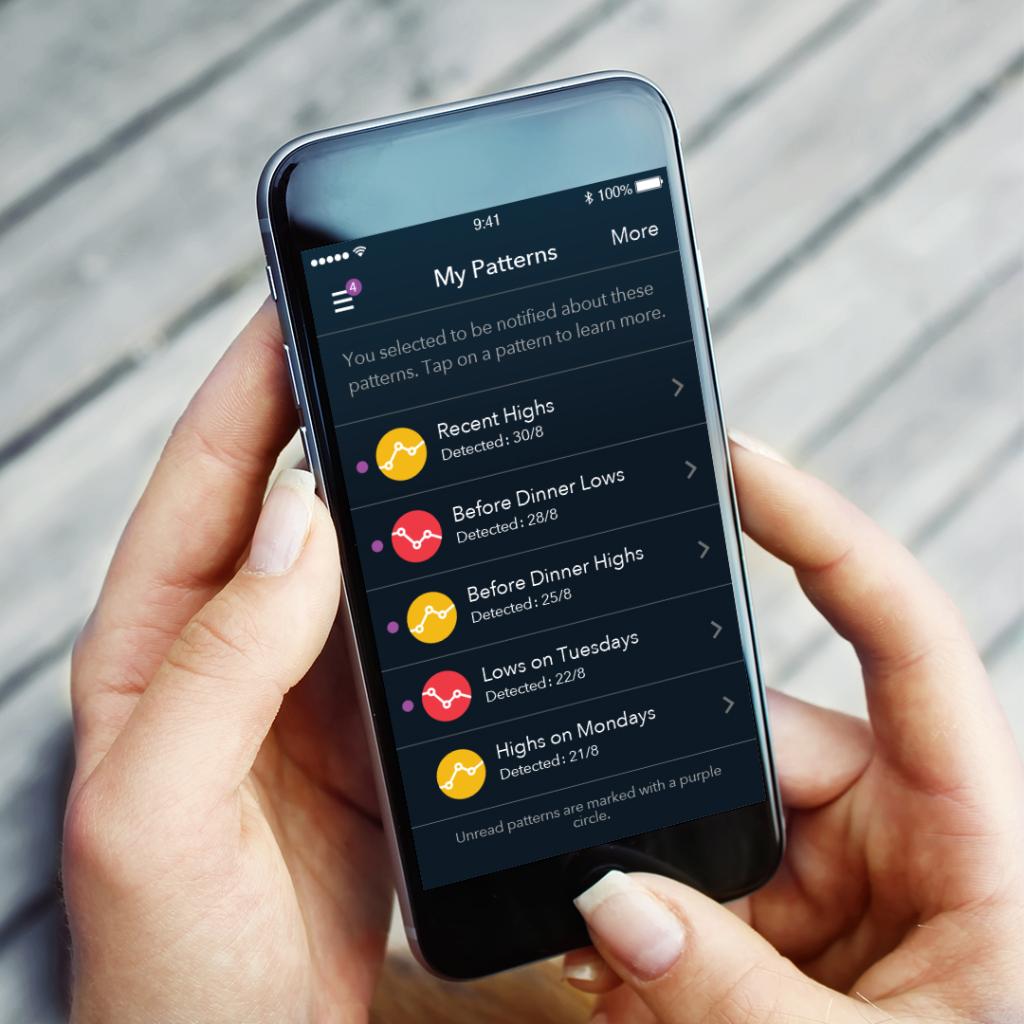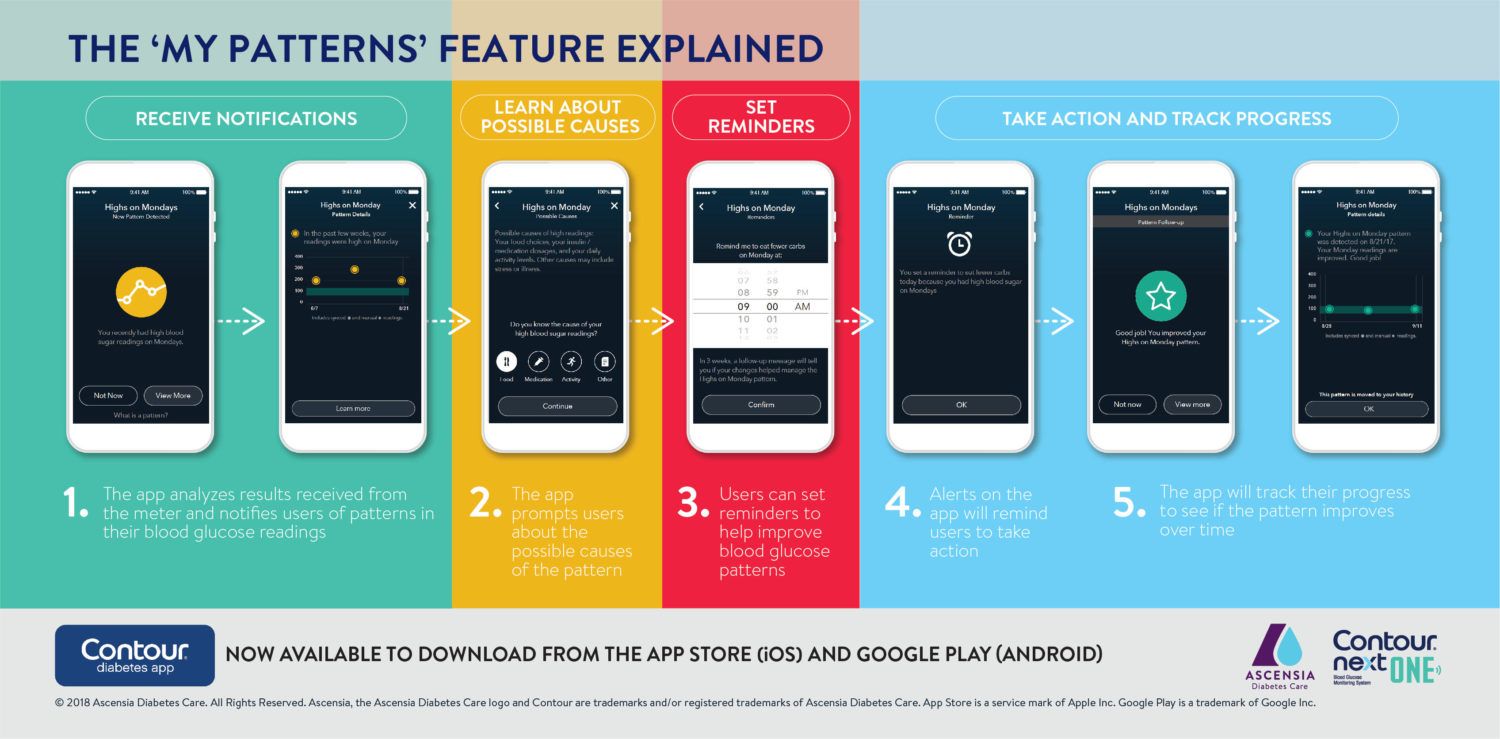
Today, Ascensia Diabetes Care has announced the launch of its upgraded version of the CONTOUR®DIABETES app in the United States. This latest version includes the new My Patterns feature, which uses innovative algorithms to more intelligently analyze blood glucose results received from the CONTOUR®NEXT ONE meter, and delivers personalized meaningful feedback to patients. This feedback is designed to help patients improve diabetes self-management and maintain positive lifestyle changs. This new release will be available from today in the Apple App Store (iOS) and Google Play (Android), and is now available in 24 countries worldwide.

First launched in 2016, the CONTOUR®DIABETES app is designed to seamlessly connect to the CONTOUR®NEXT ONE meter†. The My Patterns feature on the upgraded CONTOUR®DIABETES app analyzes data received from the meter to identify and notify the user of sub-optimal patterns in their blood glucose readings. Once it has notified the user that a pattern has been identified, the CONTOUR®DIABETES app will prompt users about the possible causes of the pattern and provide guidance to help address it.
It allows patients to set reminders or use testing plans to help improve their blood glucose patterns, and will track their progress to see if the pattern improves over time*. The latest version of the app includes the ability to recognize 14 different patterns and use 11 different structured testing plans. The app will continue to evolve in the future to include additional patterns and testing plans, as well as adding new features and functionality.
My Patterns has been developed using evidence-based behavioral science concepts from the Information, Motivation and Behavioral Skills (IMB) model of health behavior change, pioneered by health psychologists Dr. William Fisher and Dr. Jeffrey Fisher. This well-researched model shows that people with diabetes need actionable information, motivation to act on that information and a set of specific behavioral skills, in order to make changes to improve the self-management of their diabetes.
Studies to assess this model have demonstrated that the presence of all three elements in people with diabetes is associated with more frequent blood glucose testing and improved self-management actions Fisher WA, Kohut T, Schachner H, Stenger P. The Diabetes Educator (2011) 37;1:85-94. The My Patterns feature of the CONTOUR®DIABETES app is designed to help the user in these three areas and support more effective self-management, enabled by technology.
The CONTOUR®NEXT ONE BGMS is also the most accurate system that has been developed by Ascensia Diabetes Care to date. Published study data has shown the CONTOUR®NEXT ONE BGMS to be remarkably accurate, meeting EN ISO 15197:2015 accuracy criteria International Organization for Standardization (2015). In vitro diagnostic test systems—requirements for blood-glucose monitoring systems for self-testing in managing diabetes mellitus (EN ISO 15197:2015) in both the laboratory and clinical setting. A study has shown that 95% of results were within ±8.4 mg/dL or ±8.4% of the laboratory reference values for glucose concentrations < 100 mg/dL or ≥ 100 mg/dL, respectively, when tested via subject obtained fingerstick results.
“Self-management is essential in diabetes, and three decades of research concerning the Information—Motivation—
